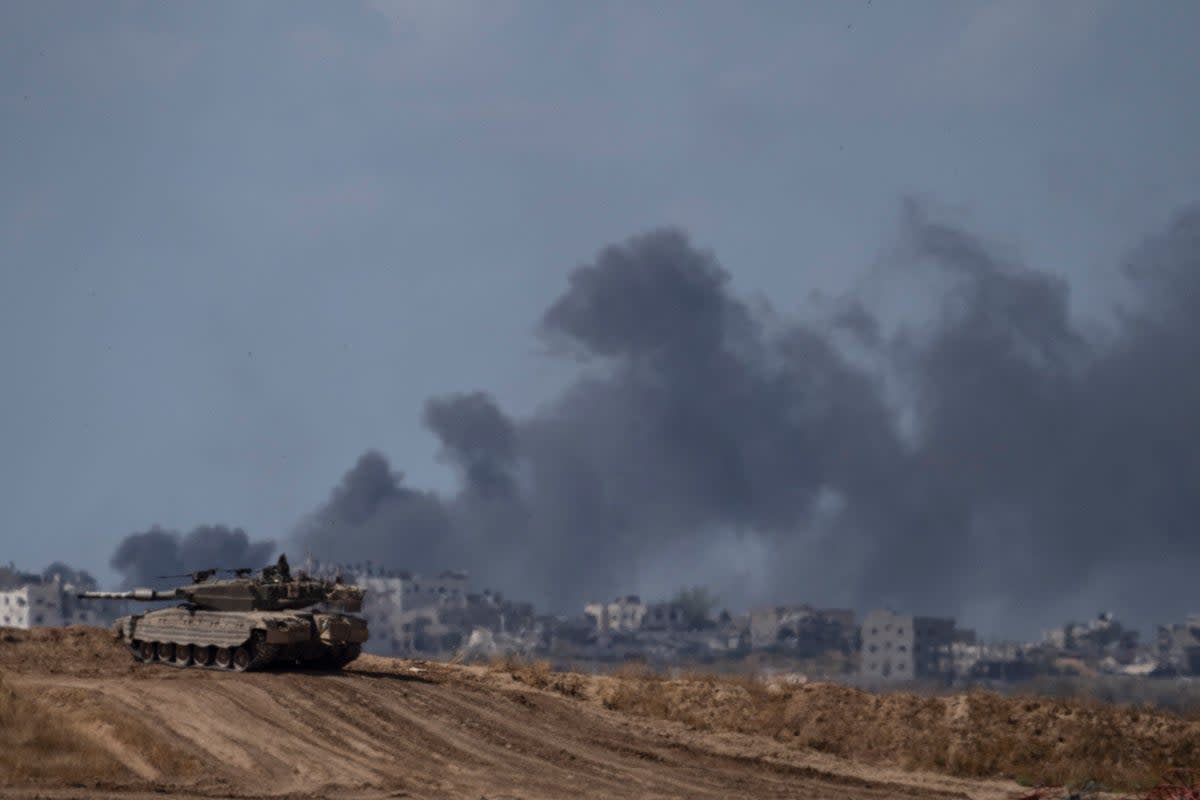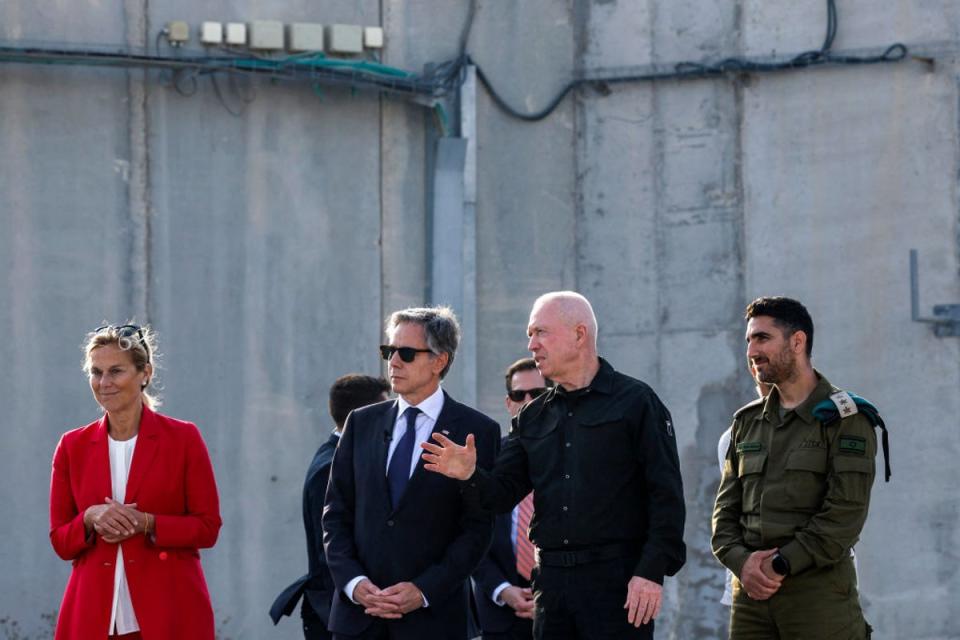US still wants two-state solution despite Israel’s opposition, State Department says

- Oops!Something went wrong.Please try again later.
- Oops!Something went wrong.Please try again later.
- Oops!Something went wrong.Please try again later.
- Oops!Something went wrong.Please try again later.
The United States is still working to get Israel to embrace a two-state solution despite the personal opposition of Prime Minister Benjamin Netanyahu and much of his far-right coalition government, the State Department said on Tuesday.
Spokesman Vedant Patel reiterated the US’s position at the agency’s daily press briefing and pushed back on assertions that such conversations had taken a back seat amid the US’s support for Israel’s military assault on Gaza.
“It’s something we remain deeply focused on,” Patel told reporters, stating that a two-state solution remains “a goal of the secretary’s, and a goal of the president’s.”
Patel went on to say that Secretary of State Antony Blinken’s planned trip to the region ahead of October 7 had been centered around the idea of furthering the normalization of relations between Israel and nearby Arab nations. Patel explained that the Biden administration had hoped that normalization would be “coupled” with the achievement of a two-state solution resulting in the formation of a recognised Palestinian state and “serious progress for the Palestinian people”.
“Obviously, the brutal terrorist attack by Hamas on the Israeli people derailed some of those efforts in the immediate term,” he added. “But that is something we continue to remain focused on.”
Benjamin Netanyahu and his government have shown no signs of embracing such a political solution to the conflict, instead showing overt hostility to the idea. Just days ago, Israel’s ambassador to the United Nations mockingly shredded a copy of the United Nations charter before a gathering of the General Assembly as the body considered a vote on full membership for the Palestinian people.
Netanyahu himself directly rejected the idea of a two-state solution in January, stating that he would accept nothing short of full Israeli “security control” in all lands west of Jordan, which neighbors Israel to the east.
“[T]his is contrary to a Palestinian state,” Netanyahu affirmed in the statement, which was posted to Twitter.
Secretary of State Antony Blinken said in May that the president remains committed to a two-state solution, and called it the only viable path forward for Israel’s security.

"Look, ultimately, it is the only way to ensure Israel's future as a Jewish and democratic state and, of course, the only way to give the Palestinians the state to which they're entitled," said the secretary on ABC’s This Week. "That's where we have to go.”
Israel’s military assault on Gaza has claimed more than 35,000 lives, according to estimates from international health agencies.
Hamas militants killed more than 1,100 Israelis including hundreds of security force members in an October 7, 2023 attack which provoked the hostilities last year.
President Joe Biden and his administration continue to face criticism for the US’s role in the conflict, from both sides of the aisle. Conservatives — both in the Republican Party and Mr Biden’s own — continue to insist that Israel has the right to fight a war against Hamas on its own terms, and say that calls for the consideration of Gaza’s civilian populations or criticism of Israel’s actions amount to a betrayal of a US ally.
Progressives and other opponents of that view argue instead that the US is complicit in a slaughter, and possibly an outright genocide. US officials have strongly pushed back on that notion, arguing that Israel is not targeting civilians or attempting to ethnically cleanse the population of Gaza. As the civilian death toll climbs staggeringly high and Israel appears to be on the brink of a major military operation into Rafah, where more than a million refugees have fled the fighting, the president is facing more pressure from his left to halt US weapon and munitions transfers to the Israeli government.
The US also remains under fire over allegations that it is slow-walking or compromising its official review process designed to determine whether recipients of US military assistance are committing war crimes as the assault on Gaza progresses.

